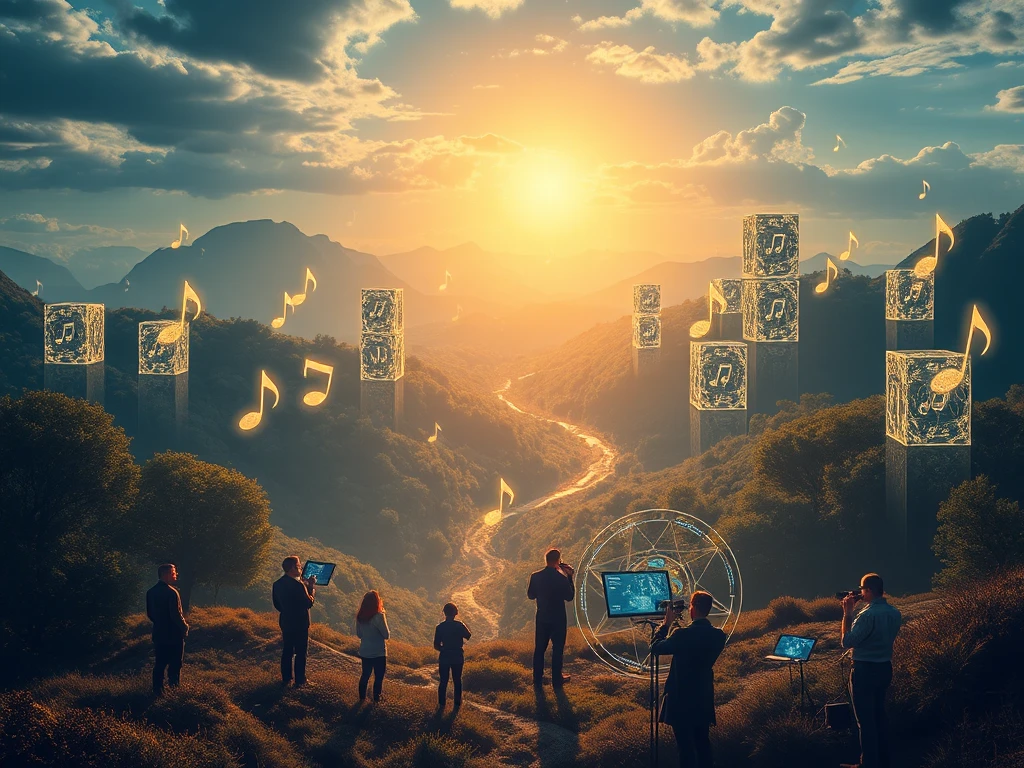Web3 Music Revolution: Empowering Artists and Reshaping the Industry

The music industry has long faced challenges, particularly for artists navigating the complexities of distribution and monetization in the digital age. Streaming platforms, while providing reach, often leave creators with minimal earnings, raising questions about fair compensation and ownership. However, a significant shift is underway. A new wave of innovation is exploring how Web3 tools can offer a powerful alternative, fundamentally changing how music is created, distributed, and valued. This is the core promise of Web3 music, moving the focus from centralized control to artist and fan empowerment.
Why Decentralized Music Matters for Creators
The traditional music landscape presents hurdles for many artists. Royalties from streaming are often fractions of a cent per play, and complex intermediaries can make it difficult for artists to understand or control their earnings. Decentralized music platforms emerge as a direct response to these issues. By leveraging blockchain technology, these platforms aim to:
- Provide greater transparency in how revenue is generated and distributed.
- Offer artists more control over their content and intellectual property.
- Enable direct connections and transactions between artists and their fanbase.
- Explore alternative monetization models beyond just streaming royalties.
These are not just theoretical concepts; many are actively being implemented and tested within the growing Web3 community.
Exploring Audius Platform and Other Web3 Innovations
Several platforms are building the infrastructure for this new music economy. Instead of relying on a single entity that controls data and algorithms, artists can distribute their work on decentralized networks. The Audius platform is a prominent example, offering a community-owned protocol for sharing and streaming music. Artists on Audius can earn tokens, engage directly with listeners, and bypass traditional gatekeepers.
Beyond streaming, Web3 introduces concepts like token-gating content, where fans might need to hold a specific token to access exclusive tracks or experiences. Non-Fungible Tokens (NFTs) also play a role, allowing artists to offer unique, collectible versions of their music, artwork, or experiences that fans can truly own and trade.
Dave Stewart of Eurythmics, co-founder of the Web3 music platform SongBits, highlighted the importance of transparency in this new model in a recent interview. He stated, “Web3 allows us to ensure complete transparency in how these funds are handled, giving fans and contributors peace of mind that their support is making a real difference.” This emphasis on clear, verifiable transactions is a hallmark of the Web3 approach.
Artist Empowerment in Practice: The Remix Contest
To demonstrate the practical application of these decentralized tools and foster artist empowerment, Crypto News Insights has partnered with Audius for a unique initiative. To celebrate the launch of its new daily show, Chain Reaction, they are hosting a remix contest for the show’s official theme song. Artists are invited to use the remix feature on Crypto News Insights’s base track available on their Audius profile. Participants can upload their original remixes to Audius, tagging them with #CTChainReactionTheme.
The winner’s remix will be featured daily as the intro and outro music for the show, providing significant exposure. They will also receive an invitation for a guest appearance. While a single contest, this effort highlights how decentralized platforms can be used for genuine community engagement and opportunity, rather than just marketing stunts. It’s a tangible example of how artists can gain visibility and potential earnings through Web3 ecosystems.
Reshaping the Music Industry for a Fairer Future
The ongoing evolution of the music industry is increasingly intertwined with blockchain and Web3 technology. As music, content, and culture move onto decentralized infrastructure, the potential for a more equitable and engaging creative economy grows. This shift is not just about new technology; it’s about redefining the relationship between artists, fans, and platforms.
Key aspects of this transformation include:
- Direct Monetization: Artists can receive a larger share of revenue directly from fans or through platform tokens.
- True Ownership: Through NFTs and tokenization, artists and fans can have verifiable ownership of digital assets.
- Community Building: Web3 platforms facilitate direct interaction and community governance, giving artists more control over their audience relationships.
- Transparency: Blockchain ledgers provide clear records of transactions and distributions.
While challenges remain, including user adoption and scalability, the foundational principles of Web3 offer a compelling vision for a music industry where artists are fairly compensated, creatively free, and directly connected to the people who value their work. This movement represents a significant step towards unlocking new opportunities for creators worldwide.
Conclusion: The Mission Continues
The journey to reshape the music industry using Web3 is far from over, but platforms like Audius and initiatives like the remix contest demonstrate real progress. By focusing on decentralization, transparency, and direct artist-fan connections, Web3 music is building an alternative to the traditional models that have often left artists behind. The potential for increased artist empowerment and a more equitable creative landscape is immense. As more artists and fans explore the possibilities offered by decentralized music platforms and innovations like the Audius platform, the vision of a truly artist-centric music industry moves closer to reality. This mission to create a fairer, more direct connection between creators and their audience is a powerful force driving innovation in the digital realm.









